 Female voice saves literature from monotony
Female voice saves literature from monotony
An interview with Mahtab Sahil, a contemporary poet of Afghanistan
By: Esmat Altaf
Translated by: Mohammad Sakhi Rezaie
SWW: Ms. Sahil, thank you very much for providing the opportunity for this conversation to talk about the poetry and literature of Afghan women, and especially about your works. On the occasion of March 8th, International Women’s Day, Silk Way Weekly is going to publish a special issue about the situation of Afghan women. Therefore, Silk Way Weekly appreciates you to have a chat about the poetry of Afghan women in recent years.
I remember, in 2018 When we were working on the case of women’s literature in the Adabiat -e- Moaser Quarterly, there was no opportunity to have a conversation with you. Apparently, you didn’t have time. Now I am glad that this opportunity was provided. I would like to start with your biography so that our readers can get to know you and your works. Where were you born, until what stage, and where did you study and which of your works have been published so far?
MS: My father’s hometown is Borjagi village, Nahor district, Ghazni province. I was born in Kabul on 28 October 1990. During the civil wars, I was three years old when our family went to Borjagi to save our lives. We lived almost during the civil wars in Barjagi village. We spent part of the previous Taliban era – I think it was two years – in Ghazni city.
After the fall of the Taliban, we went to Kabul again. When the Taliban fell, there was no specific war, at least I don’t remember. It was just bombarded a little and the next day we saw that there was no Talib. It was as if the earth had swallowed them. None of them existed. The republic period came and I completed the school period. I received my bachelor’s degree in law and my master’s degree in criminal law and criminology at Islamic Azad University, Kabul branch.
Also, three collections of my poems have been published so far. These three collections are “Tulips are my wounded lips”, “Surah of Gisoo and “Forty poems of Hamzakham (the common pain).
SWW: In which institutions did you work during the republic?
MS: My life has always been torn between two disciplines; One is the field of literature, which includes cultural activities, and even human rights activities, and the other is the field in which I studied. I have had activities in both fields.
For some time, I collaborated with the “Dariache” literary and cultural association, which was the association of poets of Northeast Afghanistan. My government work started with the Afghanistan Presidential Administrative Officine. That too after the publication of the collection of “Surah of Gisoo”. Before starting my work with the Afghanistan Presidential Administrative Officine, I came to an Iranian festival. After returning, the president invited those who had been cheered or awarded at that festival and had a party. In that party, he told us that you should work with us and a number of us were appointed. I was one of those who joined the work there. I worked there for five years.
I also cooperated little with the Ministry of information and Culture. I Also cooperated with a number of human rights institutions; I cooperated with the “Institute of Human Rights and Democracy in Afghanistan” which built a museum of the remaining works of war victims in Pule Sorkh. From the beginning of my literary career, I was a member of the “Qalam”, Pen Association and my cooperation continued until the last days. The last poetry session of the association was my poetry reading session. After that, Kabul collapsed and the Taliban came and everything was destroyed.
SWW: As we can see, you were involved in two fields and continued both and worked in both fields. In the field of literature, we have seen the publication of three collections of your poems. I would like to ask when did you turn to literature, especially poetry? That is, when did you feel that you can arrange words in an artistic way that becomes a poem and finally, the poem becomes your identity. In that format, speak your mind and be recognized with poetry; So that today Mehtab Sahil the poet is more known than Mehtab Sahil the lawyer.
MS: I have memories from the early days of joining literature. One of the cold and harsh winters in our village in Hazarejat, my mother went to the wedding of one of our relatives. It snowed heavily that winter and my mother could not return home. She had to stay there until spring. It took several months to see our mother. One day I was very homesick and in the seventh grade, I was crying and writing things. The Dari literature teacher noticed me. He came near me and read my writing and encouraged me a lot. I remember that everything I had written had meter. This is the only memory I remember from the beginning of writing. Six or seven years passed since this incident and I always practiced writing. I was reading my writings and I was hesitant about whether anything could be gained from them or not. Are they poems at all and are considered literary texts? Fortunately, I came to a conclusion after six or seven years. The Afghan Pen Association took the initiative to publish my first poetry collection. This was the beginning of my joining the world of literature.
Due to the fact that women in Afghanistan have always been deprived of their most basic rights, there has always been a difference between women and men and between girls and boys, and we witnessed these issues even during the republic. Therefore, one of my concerns has always been to know where it says that I have less rights than my brother. Although our family was a bright family, it did not differentiate between us; But I saw these differences at school and in our neighborhood. This concern made me go to the field of law and take a scientific step in this direction.
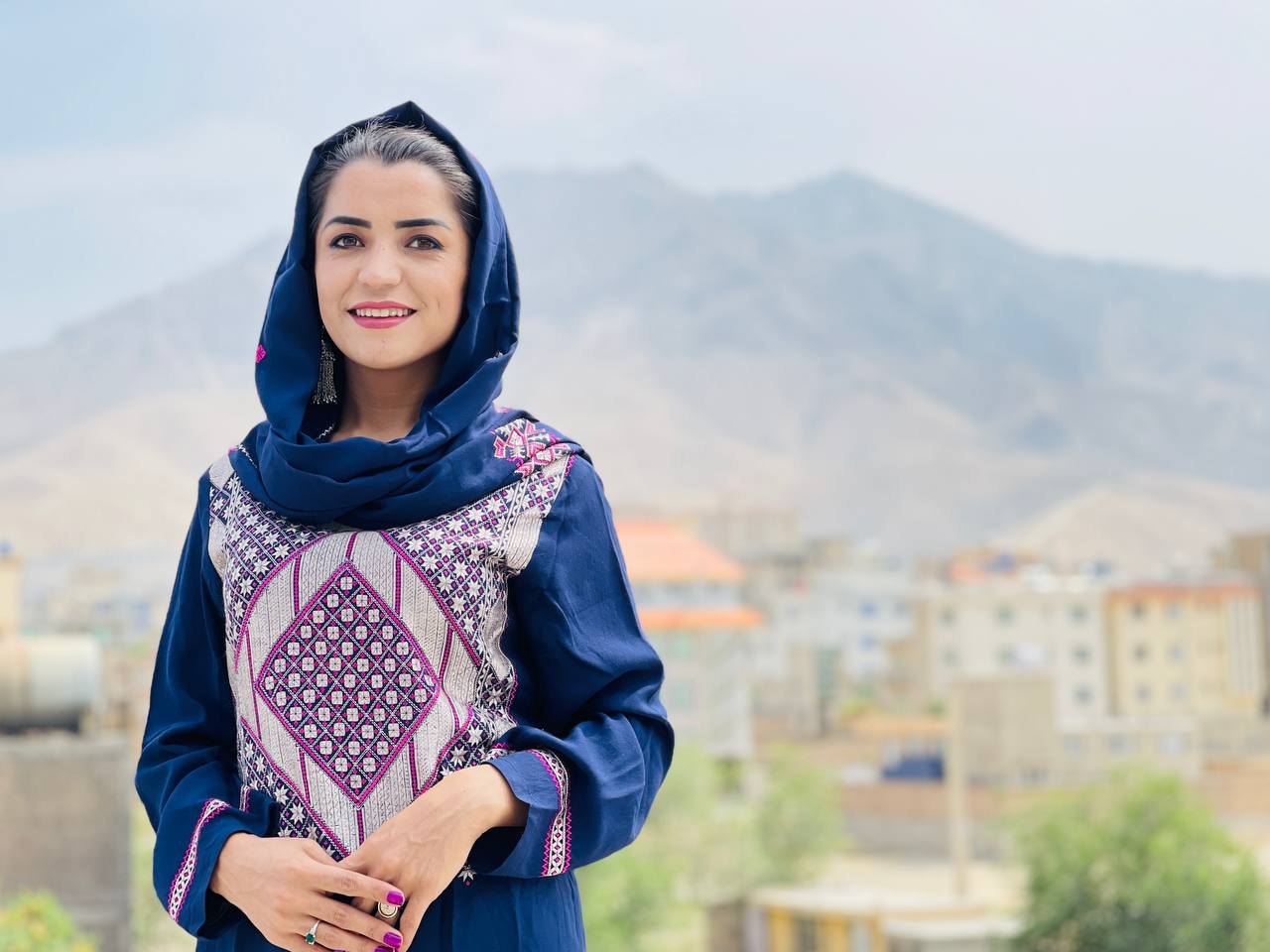 I wanted to understand why women are given less rights and why women are considered inferior. Where does violence against women come from and where do its roots come from?
I wanted to understand why women are given less rights and why women are considered inferior. Where does violence against women come from and where do its roots come from?
On the other hand, literature has always been my concern. Every time I have finished my homework and practice, I have seen that my protest, romantic and socio-political poems have a more feminine language.
SWW: Yes, Mrs. Sahil. We will come to the language of your poems and I will ask questions. One of the issues that is important and influential in the formation of the literary identity of every poet and writer are the great poets and writers before he and her contemporaries, and even the active literary institutions of her era. I want to ask if there was someone or people in your literary life who helped you in this direction and showed the flaws of your work?
MS: In the last twenty years, there was freedom of social media in Afghanistan. The gates of educational centers, schools and universities were open to everyone. Very good opportunities were provided. Many institutions regularly had poetry sessions. I remember in 2015 or 2016, I went to three poetry sessions in one day. For example, two or three poetry sessions were held in Pul Sorkh, poetry sessions were also held in Dasht Barchi, and such sessions were also held in the Afghan Pen Association.
Although these sessions gradually changed its form and only people read poetry, without saying anything about the poem; But at that time, these meetings had an educational aspect. You would read poetry; your work would be criticized. You used to hear reviews and comments from poets that were very influential.
Another thing that was very common and influential was Facebook and other social media. I first started the poem with a couplet. We had groups called Dubaiti, Charane and Rubaei or Quartet. I was a member of these groups; How beautiful these groups were. There were several poets from Iran who are not well-known names here; But at that time, they had an influence on our youth and criticized their work. Regarding meter, rhyme, and order, they reminded valuable points that were undoubtedly effective in improving work of the new poets. A number of Afghan friends were also members of these groups.
My first couplet, which was included in the collection, is from that time. After that, I collected everything I created and did not throw it away. While I threw away the exercises before that. That couplet is: May all my strength be fever and the night/ be silence on my lips and the night/ they created me as the moon so that my portion/ of this world is only night and night.
After that, I felt that my poems had reached such a level of strength that I would keep them and present them as examples for my practice.
All these had an effect in their place. There were good friendly and intimate groups where everyone would post their new poem and everyone would read and criticize it.
SWW: Another issue that is influential in the literary life of anyone is their dealings with other writers and poets. This interaction can be with the writers and poets of the past and with the poets and writers of their time. Even among these poets and writers, everyone likes the works and words of a certain person more. With this introduction, I would like to ask, among the classical poets, who do you have the most affinity with, and among the contemporary poets of Afghanistan and Iran, whose works do you feel most close to?
MS: Well, classic texts or classical literature are important to read for several reasons. If you can write, you really need to read and communicate with them. I think that poetry and fiction are the unofficial history of nations, and when you don’t want to reconcile with your past history and don’t want to deal with it, it’s definitely difficult to claim that you pick up a pen and write about your present. This is a topic.
Another issue is that classical literature has very bright and pure teachings that are not outdated and can always open the way for people’s lives. Especially we who have a society full of adventures. Sometimes they act as a sedative and calm the person down.
Also, linguistically, your language will become more fruitful and rich. You also become aware of your own cultural background. Therefore, it is necessary to study classic texts; But unfortunately, my field of study was something else. I had to study law and work in that field. On the other hand, I studied and read as much as I could; But I do not claim that I am a well-educated person. I read from time to time. I love the romances of Saadi, the poems of Hafez, Rumi, Sanai and other Persian literary greats. Whenever I feel depressed due to the situation, I take refuge in them.
I also read contemporary literature. Among the contemporary poets, the one who has influenced me the most and whose poems I read a lot is Forough Farrokhzad. Forough has a new world for me. In one day and night, if I go to Forough twice and read her poems, Forough still has something for me and it is fresher and fresher.
In my first collection, Forough had the greatest influence, and in my second collection I have some charparas (castanets), that I feel were influenced by Forough Farrokhzad’s poems in terms of format, structure and content.
SWW: I wanted to ask a question about this. It’s good that you mentioned it. Although it is the work of literary critics to show affect and influence; But sometimes the author can be their own critic. Among the male poets, whose poems do you like and read most? Do you feel that any of them have influenced you?
MS: Well, in Iran and Afghanistan we have good poets who sing ghazal and other classical forms. I do not feel influenced by anyone. However, I read the poems of all the contemporary poets of Afghanistan. I have also read a lot of contemporary Iranian poets, whose number is so large that it is impossible to name one.
SWW: You are familiar with the poetry of female poets of your time, and you must follow their poems either online or in magazines, literary circles, and festivals. From your point of view, how familiar are they with the texts of the past and how much do they relate to?
MS: Look, it is not possible to distinguish between men and women of the young generation of Afghanistan; But in general, there is little study among them. Perhaps one of the reasons for this situation is being in the virtual space, which on the one hand takes more time from them, and on the other hand, because this medium is so accessible that, for example, a poet is still not sure of their words whether they are complete or not. Shares it online. In my opinion, this is one of the plagues of our young generation. Because it takes a lot of time from them and does not give them the opportunity to study ancient texts. This is how we are witnessing the emergence of poets who, it is true, are known as poets in literary circles and cyberspace, and who capture people’s attention. But we see that their study experience is little. They have not read classical literature or contemporary literature. Therefore, being undereducated is one of the problems of our peers.
SWW: In order to make your answer more complete, I would like to ask in parentheses what consequences this situation can have on our literary current.
MS: This issue cannot be raised only in the field of poetry. In all aspects, when you come to the stage with an empty back, you remain like today’s celebrities. You stand out, you fill a lot of space in society, you get time in programs; But in general, lasting and significant work or works are not created.
The history of literature will not remember these. In the history of literature, there are those who have thought in their poetry. These are the thoughts that last and remain in the memory of history. Otherwise, works that are created without rich cultural, historical and intellectual supports are doomed to decline and be forgotten. The space that these works have occupied, in fact, have taken an opportunity from others.
SWW: Before the recent transformation and domination of the Taliban regime in Afghanistan, women’s literature, both in the field of fiction and poetry, was in a good direction. Both in terms of quantity, many people came to the field and created good works, and in terms of quality, impressive works were created; works that can be the light of the future. Even now, good works are definitely being created. In the past twenty years, poets entered the field of contemporary literature whose individuality and identity of the poet and the society they lived in are visible in their works. What do you think about this?
MS: I emphasize again that the past twenty years, despite the problems, I am not saying that everything was good and ideal; But it was a good ground for such women’s activities. That is, in these twenty years, women tried with all the strength they had to reach somewhere, and according to the situation they were in and the background they had, they got a good result to some extent.
If we study the history of Afghan women’s literature, we can clearly see that they have always been influenced by male language, atmosphere, and sense. Maybe they have spoken in one or two hemistiches in such a way as to show tha. been like the world of men. Their vocabulary and mood, vocabulary and aesthetics have been masculine. In a sense, Afghan poetry was monophonic. We cannot distinguish male and female poetry based on their language and content. Because of this, the beloved did not always have an appearance. Emotions were not revealed as much as they should be;
But in these 20 years, each poet, in recognition of their talent, used courage and removed the curtain from their own world and was the narrator of their own world. Also, many taboos were broken in Afghanistan. The pioneers of this type of expression also made sacrifices that I can mention Shukrieh Erfani, Maral Taheri, Karima Shabrang, Sada Soltani, myself and many others. I am well aware that each of them suffered from the society because of this type of expression.
In The first decade of the 2000, new figures entered the field of poetry who are still active and sing poetry. If we examine Afghan women’s literature from the beginning of the 90s, we can see prominent features in it. First of all, it is feminine, then we can even recognize anyone’s poetry. This shows that women’s poetry has reached a good stage.
SWW: Although it is somewhat difficult to judge now; But what can be seen is the coming to power of the Taliban, which led to the ban on girls’ education, the migration of poets and writers and cultural figures, and the suspension of the activities of literary and cultural circles inside Afghanistan. This situation will create a break; Especially if we imagine more years that the situation will continue like this. However, how do you predict the future of women’s literature in Afghanistan? Especially since women and girls do not have the possibility to study and work, nor the possibility to attend literary and cultural programs; So the talents that should be nurtured and flourished in these years will not be.
MS: Yes, I agree with you. If the situation continues in this way, we will definitely see a rupture. Even the tragedy is deeper than this. The fall of the republic and the rise of the Taliban was not only the fall of the political system. The generation that studied and grew up under the shadow of the republican system is now facing destruction. If we look closely, it is very scary. The world has closed their eyes to all these inadequacies. They look at the matter as if Taliban were on the other side of the coin in Afghanistan. Now the page has just turned. Maybe it doesn’t matter to the world; But for those of us who lived in Afghanistan, we made dreams and laid bricks for our future, we made sacrifices and aligned ourselves with that system, we were destroyed. Cultures who worked and shone in Afghanistan, now became immigrants. In the new environment, firstly, they do not know the local language and secondly, they are not familiar with their culture. Learning and getting familiar with the second language and culture, they distance them from their own language and culture and naturally they also deprive them of literature and the creation of new literary masterpieces. The number of those who remain inside Afghanistan is small. They cannot have any activity. If they do something, they are so few that it is not much to hope for them. They live in secret. They can’t get together and read poetry or have a wider artistic activity because of the fear of Talib. With all this, the only loophole that exists and may be a source of hope is that Talib is the same Talib of twenty years ago; But women are no longer those women. We have seen that in the two and a half years, Afghan women were the flag bearers of protest around the world, and the voice of Afghan women’s protest was not only silenced, but in any situation, they took their lives in their hands and went to the streets. Despite the fact that women returned from Taliban prisons spoke of physical and mental torture; But still the protests did not stop.
Lately, I have been reading good poems from poets living in Afghanistan. For example, Masoumeh Mahshid, Limah Afshid, Tamnna Mehrzad, Kamelah Kaihan and some other poets wrote good poems after the fall. These are the currents. But in general, according to your words, it is too early to judge and say where poetry is going today. I hope that the current situation in Afghanistan will not last long and we will be able to get out of this shock.
Yes, Mrs. Sahel, you are right. Two important events happened with the fall of the Republican system and the establishment of the Taliban Emirate; One was the massive wave of immigration and the other was the deprivation of Afghan women and girls from education. If we are optimistic about immigrants that they will continue their work, if not better than before, at least at the same level; But inside Afghanistan, the process of cultivating new talents has been interrupted. I personally see this. Because both schools and universities are closed to girls and literary and cultural circles and programs are not held. A girl who feels in the sixth grade that she has a taste and talent for composing and writing, if there is no context and possibility to develop this taste and talent, how will her talent be developed and how will she continue her way?
We see the future of the next generation very dark. I just hope this situation does not last long. There should be a system that recognizes at least some human rights.
On the other hand, in Afghanistan, it is not only about women. Even these men who go to school and university, their textbooks have either changed or are changing. Their educational materials are according to the standards and beliefs of the Taliban. They train them so that they act as their soldiers tomorrow and will have the same thinking as the Taliban have. What will this thinking do to the future of Afghanistan and the future of the world? Girls not going to school is a sadness; But raising boys with Taliban standards and teachings is another tragedy. The privacy of women and girls from education is a kind of blackmail that the Taliban want to get the approval of the world and cover up the rights of Hazaras and other ethnic and religious minorities and not discuss them at all. Those who are now on the stage are the product of the student-raising schools that existed before. But now all the schools and facilities are at their disposal. They expand their thinking and inject darkness into the minds of Afghan children and teenagers. This is terrible.
SWW: You may be more familiar with Afghan women poets and writers; Poets and writers who were in Afghanistan and created works during these twenty years. It is possible that some of them are the product of this twenty-year period. During these two and a half years, what is the status of literature production in Afghanistan, especially poetry?
MS: I’ve read very little lately from poets we’ve long expected to write and publish. It means that the production level of literary works is very low; Because some of them are involved in new problems in different countries to adjust themselves according to the conditions there and some of them are stuck in Afghanistan, their mental and emotional situation does not allow them to sit down and write poetry. The few poems that are created are protest poems by women, protesting the existing situation or expressing the problems they have encountered in the second countries. Some were written to support women’s movements.
SWW: What effect do you think this situation has on the literary flow? Is this situation a limitation that binds their hands and feet?
MS: This is a difficult question. Let’s see what history will judge in this case. Maybe there are those who create magnificent works in isolation; But in general, when there is no platform and there are no forums and gatherings where you can gather and be encouraged and motivated, exchange ideas, I think it is very unlikely that a good flow will be created. I don’t think there is no opportunity now.
SWW: If we don’t talk about others, how has the current situation affected your poetry, Mrs. Sahil?
MS: I don’t really feel separate from others. It has had the same effects on me as it has on others. Since I came from Kabul, I have not been very active. My concern, like many, is the concern of bread and the problems that arise every day. All these are burdened on one’s mind and one has to try with new systems and new methods to continue life. In the current situation, it is enough for me that life does not stop. I have only written a few new poems in support of women protestors, which I know are very few.
SWW: The last work you published was “Forty Poems of Hamzakham”, at the beginning of this year, by Kelkeen Publishing. This is your latest work after ” Surah of Gisoo ” which was published by Amu Publishing House and Tak Publishing House before. Were the poems in this collection written before the fall of Kabul?
MS: Yes, I had written these poems before the fall. The book was already collected, but its publication was delayed.
SWW: Why did you choose this name? Was it because of the common content of the poems? Do you think these forty pieces of poetry have a common wound that you named so? If so, what is this wound?
MS: Inside this collection, I have a poem called Hamzakham; It is a revolutionary poem. I composed it when the provinces of Afghanistan were falling one after the other and falling into the hands of the Taliban. The word Hamzakham (Common Wound) comes from this poem. When I saw that I have forty pieces of poetry in my hand and forty has many combinations in our culture. In this collection, these 40 can be 40 ethnic groups. The wound is the common pain that all the people of Afghanistan have. In this collection, I have poems that refer to different people of Afghanistan.
SWW: If we start from your first collection (Tulips are my wounded lips), as you said, it has naked and naked romances, and we reach ” Surah of Gisoo ” and finally “Forty Poems of Hamazakhm”, we see that in the first two collections, I am a very bold poet. And more prominent than me is his social; But in the second one, the poet’s individual self becomes dim, and the social self becomes bolder and stronger. I may even lose color altogether. Meanwhile, two things are very prominent, one is the social and collective pains of the society to which the poet belongs, the other is the problems of women. Is this impression correct? If true, what made you so inclined?
MS: Yes, I feel it myself. This has happened. When my first collection was published, I believed that it was just effort and practice and poetry practice. Of course, all my work has been like this. One can never say that a work is perfect and flawless; But in the second collection, it was possible not to struggle with the templates anymore. I already knew that I could do classical poetry.
Just as you believe that poetry should arise from the poet’s life experience, I also believe that poetry is the life experience and mental concerns of every poet. It is a poem that expresses the poet’s inner self and introduces them to the audience. I myself feel that I was more involved with the issues of Afghanistan.
SWW: Mrs. Sahil, you say in poem number 30 of this collection, “Today’s human beings are yesterday’s monsters/ They tear and eat and go berserk.” Where does this pessimistic view of modern man come from? Where do you think it originates from in the social life people of Afghanistan?
MS: Your words are accurate, the look is pessimistic. Of course, this view is not only related to the people of Afghanistan. I’m not saying it doesn’t exist in Afghanistan, maybe it’s more prominent than in other places; But I remember the exact date of writing this poem. I wrote when the forests of Australia were on fire and I saw the animals as they burnt.
Several politicians from several countries were sitting at the table and had a meeting about it; But they didn’t actually do anything. The videos that were released showed the animal with its baby in its arms and burning in the fire. This image affected me so much that I was ashamed to be human. This poem was written at that time.
SWW: In the same poem, you have said: “Sometimes I am a companion of my Kabul maidens/ I dance on a fire carpet/ My lover sings from a rifle/ He puts a yoke of gold on my throat, I dance.” Here, we have the same previous view of female manifestations and tools. Why do you think that women’s necklaces are women’s yoke?
MS: In Afghanistan, we have people who have modern thoughts; But in general, the general tradition is that the boy’s family should buy gold and give milk money (Money paid by Groom) to the bride. The groom should provide these. This makes the bridegroom to have complete possession of the bride by paying these. You must have heard the story of Setarah, a girl from Kandahar, who on the second or third night of her wedding, because of these issues, her ears and nose were cut off by the groom. This poem actually marks this tradition.
SWW: They consider literature as the artistic use of language. Or it is something that happens in language. I want to ask what is more important to you when writing a poem, words or meaning? Or do you not think of any? I ask this because it has been said that meter, rhyme, and formal issues are a burden for poets.
MS: I approve of the last option. Very rarely have I gone to poetry and tried to write something. A poem does not come out like this. For me it is like this; When I have a sense of poetry, I feel homesick and feel like running away from the crowd. I try to provide my privacy. Then I just write to edit later. It’s like a tear that bursts out because of grief and pain, and you have to write it down.
SWW: Women’s language is prominent in women’s poetry. Women’s literature has been called literature that revolves around the lives, concerns, pains and characters of women. The same issue is sometimes interpreted as writing about women in this way can help the cycle of patriarchy. When we portray women in literature as being involved in cooking and washing and other tasks that are now the responsibility of women in our society, it is as if we are reproducing this situation. What is your perception of women’s language and literature?
MS: Literature that revolves around women’s lives and talks about women, if the narrator is a man, the same thing happens. The male narrator narrates his own world and his expectations from the woman; But when the woman herself opens up and talks about her world, it is very different from the previous case. We are now faced with the world view, look, language and concerns of women. Or rather, we are dealing with a female voice. Another voice emerges and saves literature from monotony.
This event remains as sound. How much does a man have to imitate to get a woman’s voice; But for a woman, without any effort, she shouts, cries and shares her feelings with her own voice. The inner world is the same. A man cannot judge from a woman’s point of view, he cannot tell what is beautiful and what is pleasurable. Only the woman herself can handle them.
SWW: Thank you, Ms. Sahel, for taking the time to conduct this interview. If there is anything left unsaid, please let me know.
MS: Thank you. I have no special point. I am very happy that this opportunity was provided and we talked. I hope one day, we will talk about the good things happening in Afghanistan.

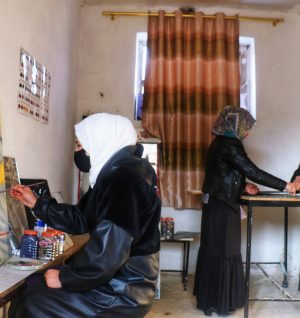
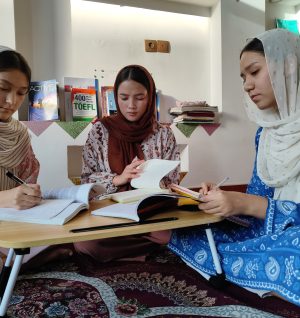
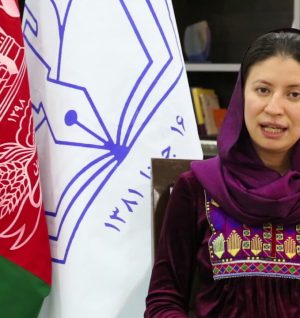

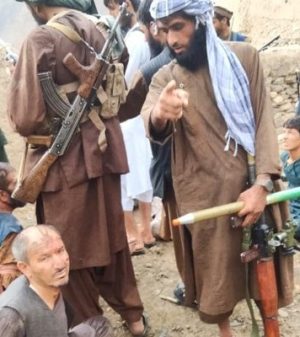
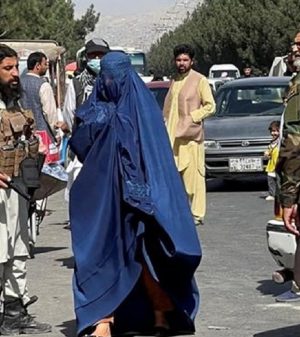
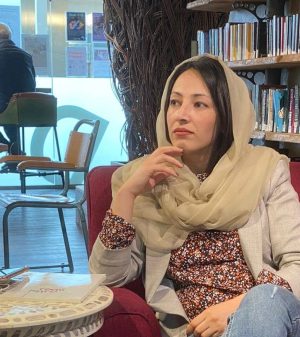
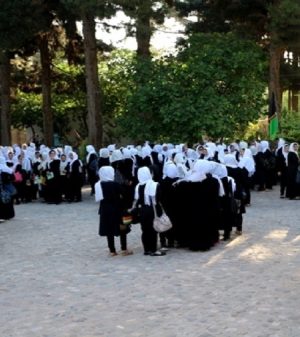
Add Comment